Social Emotional Learning Teaching Resources
Are you on the hunt for social emotional learning activities, printable PDFs, and more to bring SEL to life in your primary lessons this school year? The list of academic benefits of SEL instruction is a mile long, and the Teach Starter teacher team has created a robust collection of social and emotional learning resources made with teachers – and your students — in mind.
We've made planning your social-emotional learning lessons simple with printable SEL worksheets and digital social and emotional activities designed specifically for the needs of primary school students. Each resource in this collection has undergone rigorous review by the expert teachers on our team to make sure you'll be comfortable passing them out in the classroom or sending them home in a student's bag.
Pardon us if we're sharing something you already know (feel free to skip right to the social emotional learning activities!), but if you're new to incorporating SEL into your classroom, you may need a quick refresher! Read on for a guide from our teacher team!
What Is Social-Emotional Learning?
The most common social-emotional learning — or social and emotional learning — definition describes SEL as 'the process through which all young people and adults acquire and apply the knowledge, skills, and attitudes to develop healthy identities, manage emotions and achieve personal and collective goals, feel and show empathy for others, establish and maintain supportive relationships, and make responsible and caring decisions.'
It's a bit of a mouthful, but essentially social and emotional learning covers five core competencies:
- Self-Awareness
- Self-Management
- Social Awareness
- Relationship Skills
- Responsible Decision Making

Where Did Social Emotional Learning Come From?
Teachers have been teaching many of the skills that now fall under the social and emotional learning curriculum for centuries. It's always been our goal to help shape little minds to be caring, productive, and engaged citizens.
But the roots of what we now consider SEL can be traced back to a project in the New Haven, Connecticut schools in the United States where school administrators worked with Yale University researchers, parents, mental health workers and teachers to refocus not just the school's academic programs but their social ones too. The project started in the 1960s at two schools considered 'underperforming,' and by the 1980s, these same schools had academic scores that were at the top of American school rankings.
From there, the K-12 New Haven Social Development program was born, establishing a framework for incorporating social and emotional learning into the curriculum. Meanwhile, the non-profit Collaborative for Academic, Social, and Emotional Learning (CASEL) was born in 1994, helping to really bring the term 'social and emotional learning' into the zeitgeist.
CASEL was born out of the New Haven projects and helped shape the official definition of SEL listed above in 1997. It now works to expand SEL in schools around the globe.
Why Is Social-Emotional Learning Important?
Not sure you have time to fit all of this in alongside the standards that you're preparing students to meet? A solid social and emotional learning curriculum will help students with everything from managing emotions and developing coping skills to setting positive goals, engaging in positive relationships and solving problems effectively — all important competencies for your classroom.
The importance of SEL is hard to overstate, but here are a few core benefits:
- Promote mental health and well-being — Teaching social and emotional lessons in the classroom can help students develop the skills they need to manage their emotions, build positive relationships and cope with stress and challenges. It's a small step toward better mental health for all.
- Improve academic performance — There's strong research showing that students who have strong social and emotional skills are more likely to be engaged in learning and perform better academically.
- Create a positive classroom culture — Teaching social and emotional lessons can help create the kind of classroom culture where students feel safe, respected and supported — exactly what we all strive for!
- Prepare students for life after school — Social and emotional skills are essential for success beyond the classroom, be it at home in the immediate future or in uni or the workforce. Teaching these skills helps students be better equipped to handle the challenges they will face.
- Address specific social and emotional needs — Teaching social and emotional lessons can help address students' specific needs, such as building self-esteem, managing emotions and developing empathy for others. This can also help to create a more inclusive and equitable classroom where all students feel respected and valued. It's also good for your overall classroom management.

How to Teach Social and Emotional Lessons
There's little question that there's value in social and emotional learning, but how do you actually teach it? There's no simple answer here, as the exact methodology will differ based on year level, individual student needs and even your classroom dynamics!
That said, here are some strategies from our teacher team to keep in mind as you consider how you're incorporating the components of SEL in your instruction:
- Modelling — This is likely no surprise — we are our students' role models in the classroom for so much. Don't underestimate the value of your own active listening, displays of empathy and self-regulation, and other skills that are essential for your students' social and emotional development.
- Classroom Culture — Establishing a safe and supportive learning environment where students feel respected, valued and empowered goes a long way. Fostering a sense of community, promoting positive communication and encouraging collaboration and teamwork are all helping kids build their SEL quotient!
- Integration — Of course, you can (and should) have explicit instruction on SEL, but you can also incorporate SEL concepts into your core subject lessons. Discuss emotions related to a character in a book or working on group projects that require collaboration and communication. If you're teaching maths, emphasise the importance of perseverance and problem-solving skills. Teaching HAAS? Discuss empathy and the ability to understand different perspectives. It all comes together!
- Plus Plan
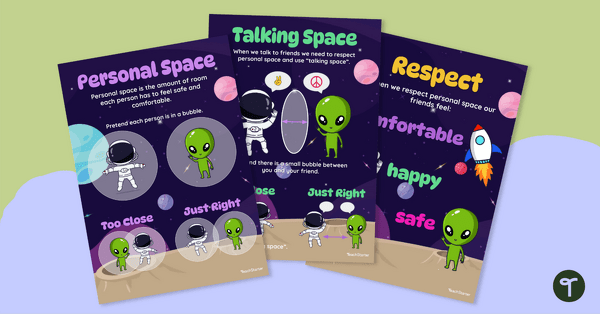
Personal Space Posters
Learn about personal space with these space-themed classroom posters.
- Plus Plan
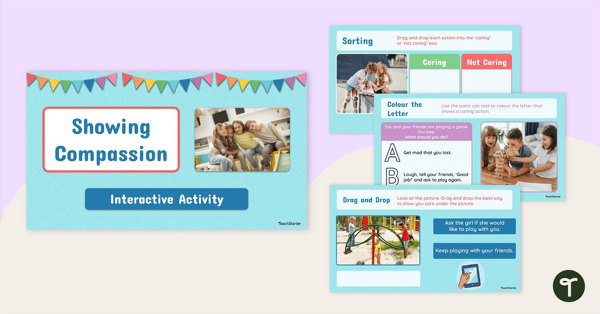
Showing Compassion – Interactive Activity
Help students understand the importance of caring for others and how to appropriately respond with this interactive activity.
- Plus Plan
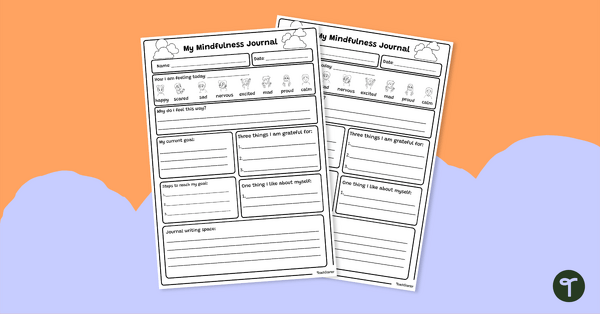
Mindfulness Journal Worksheet
Create a mindfulness journal with this mindfulness self reflection template.
- Plus Plan
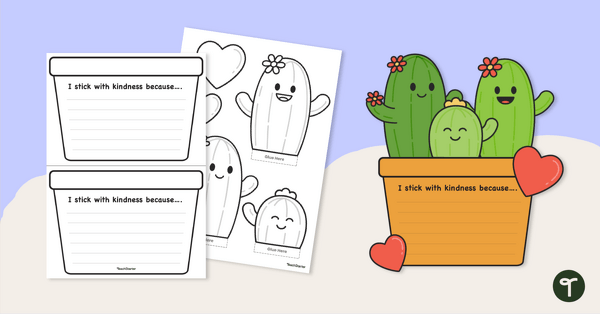
Stick With Kindness Craft and Writing Template
Discuss the importance of kindness and explore why we should ‘stick with kindness’ with this writing and craft activity.
- Free Plan
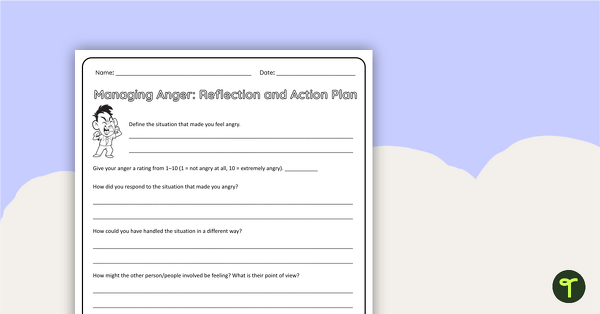
Managing Anger Worksheet (Upper Primary)
Help older students identify and manage angry feelings with this self-reflection and action plan worksheet.
- Plus Plan
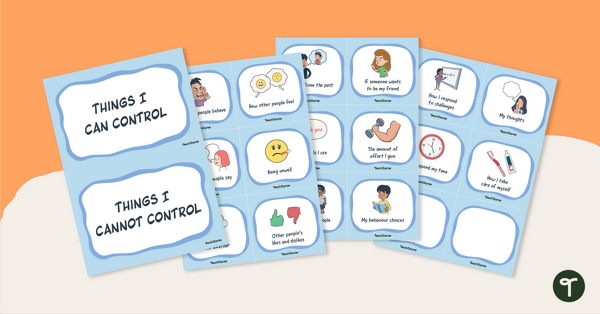
Things I Can and Cannot Control - Sorting Activity
Help students identify things in life they can and cannot control with this interactive sorting activity.
- Free Plan
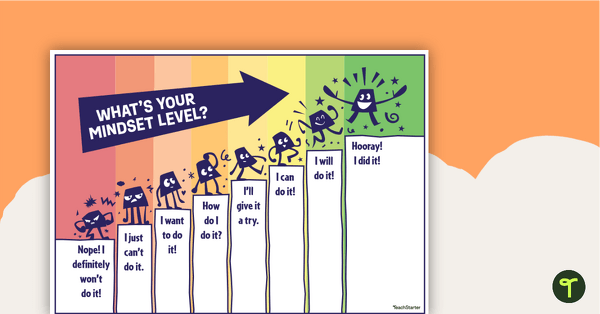
What's Your Mindset Level? - Poster
Encourage your students to adopt a growth mindset with this engaging classroom poster.
- Plus Plan
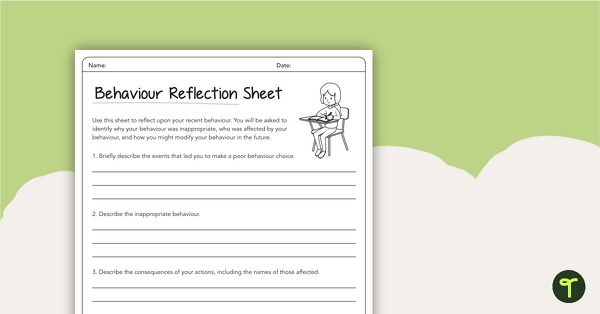
Behaviour Reflection Sheet (Upper Primary)
Get your students to reflect on their behaviours with this reflection worksheet.
- Plus Plan
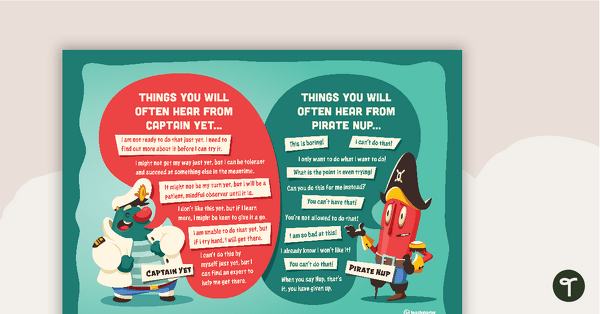
Growth Mindset Captain Yet: Yet vs Nup – Poster
A classroom display poster which compares positive and negative learning attitudes to help students focus on positive learning habits.
- Plus Plan
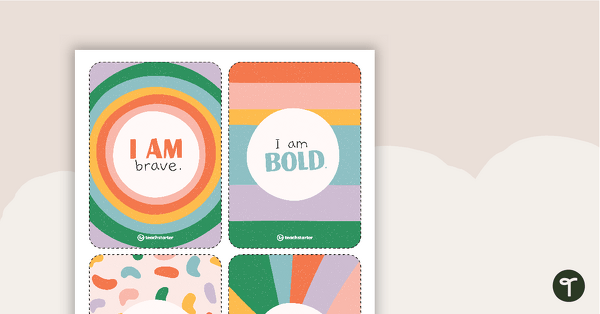
Positive Affirmation Cards for Kids
A set of 24 inspiring positive affirmation cards to encourage a growth mindset, self-confidence and self-belief.
- Plus Plan
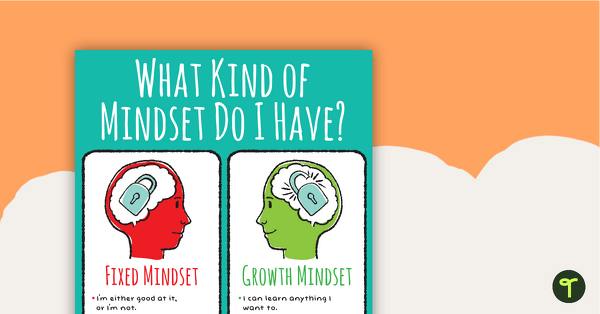
Growth and Fixed Mindset Poster
Help your students choose a growth mindset with this poster highlighting the differences between a growth mindset and a fixed mindset.
- Plus Plan
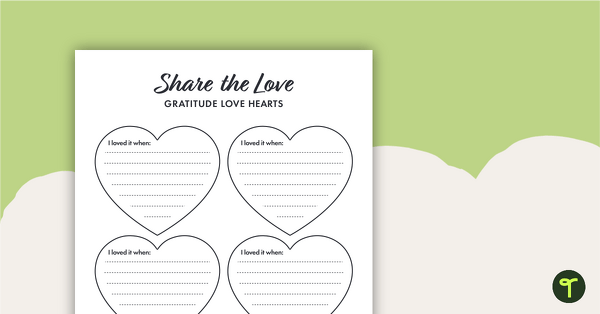
Share the Love - Gratitude Love Heart Template
Help your students show their appreciation for the good things in their lives with this wonderful love heart template!
- Plus Plan
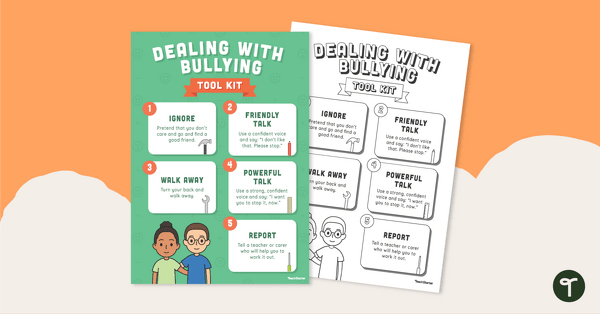
Dealing with Bullying Poster
A poster to display in the classroom to encourage students to use the five Tool Kit resilience strategies.
- Plus Plan
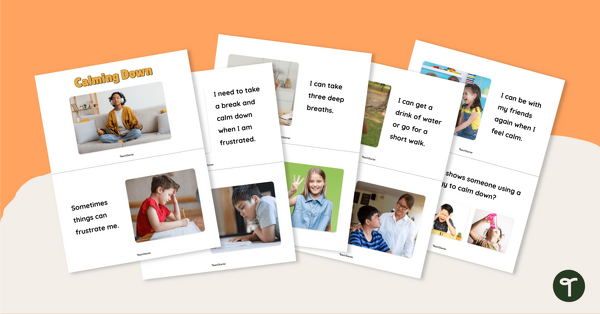
Calming Down Mini-Book
Help your students to keep calm when they are experiencing heightened emotions with this social story mini-book.
- Plus Plan
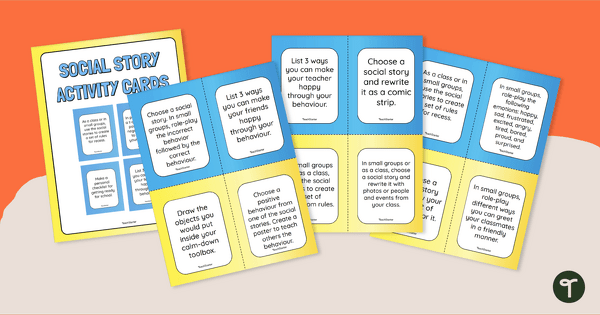
Social Stories - Activity Cards
Help your students build social skills and practise concepts learned within our social stories with a set of printable task cards.
- Free Plan
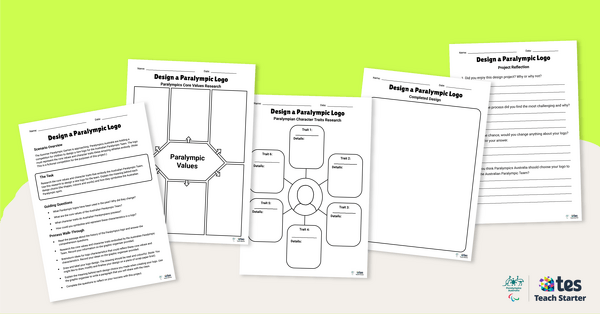
Design a Paralympic Logo – Inquiry-Based Project
Have your students design a new logo for the Australian Paralympic Team with this inquiry-based learning project.
- Free Plan
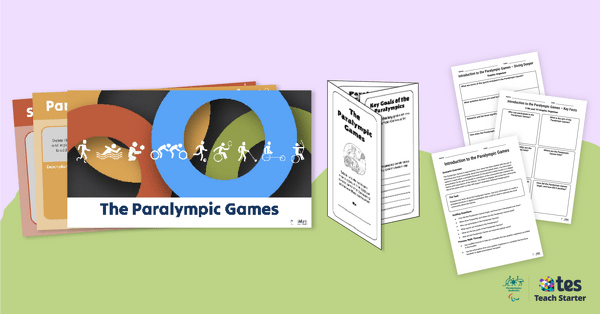
Introduction to the Paralympic Games - Inquiry-Based Project
Introduce your students to the key components of the Paralympic Games with this inquiry-based learning project.
- Free Plan
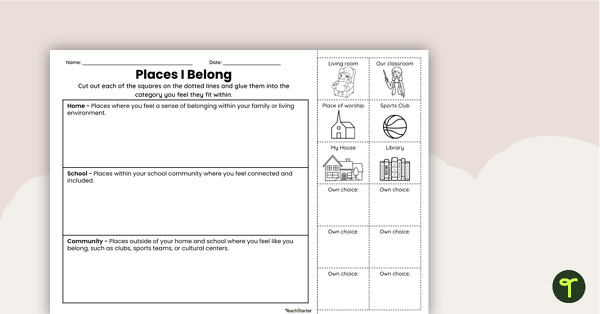
Places I Belong Cut-and-Paste Worksheet
Encourage students to think of the different places they feel a sense of belonging at school and in the home environment.
- Plus Plan
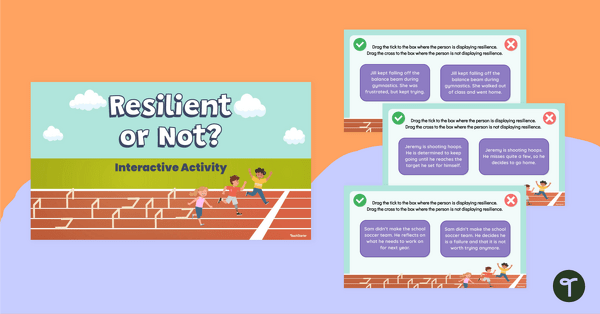
Resilience or Not? Interactive Sorting Activity
Explore examples of resilience by playing this interactive sorting game perfect for your social-emotional learning lessons.
- Plus Plan
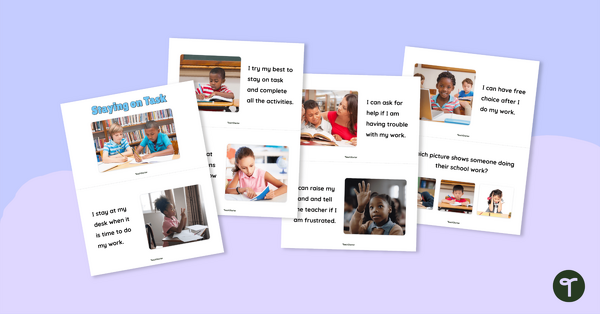
Staying on Task Mini-Book
Review different strategies for on-task behavior with this printable mini-book.
- Plus Plan
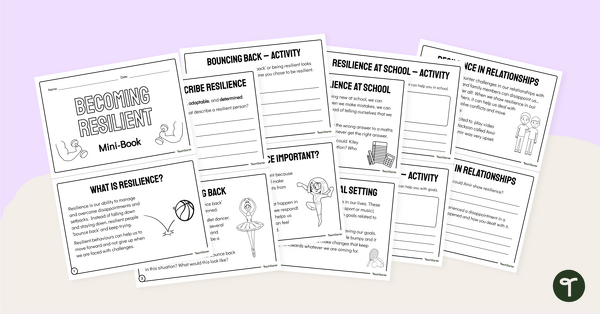
Becoming Resilient Mini-Book
Use this printable resilience book to teach your students what resilience means and how it can be used as a tool in their everyday lives.
- Plus Plan
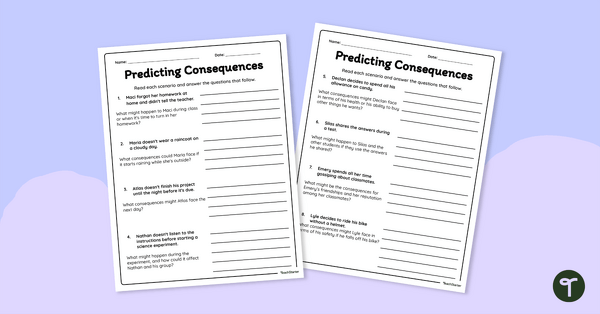
Predicting Consequences Worksheet
Help your students anticipate the consequences of their actions with this SEL worksheet.
- Plus Plan
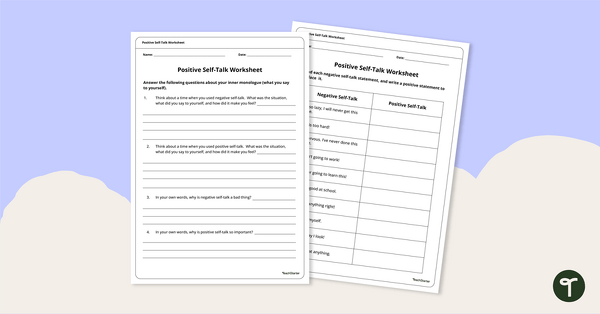
Positive Self-Talk Worksheet
Encourage students to analyse their individual self-talk practices and establish a growth mindset with this personal assessment worksheet.
- Free Plan
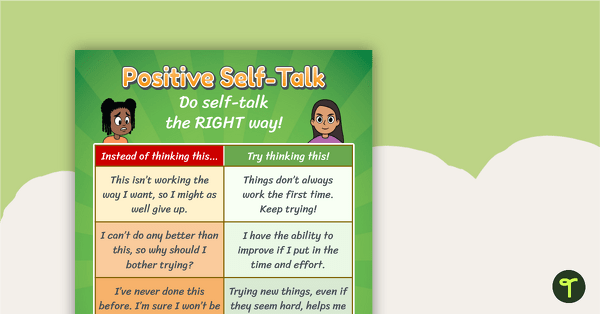
Positive Self-Talk Poster
Encourage your students to use positive self-talk on a daily basis with this motivational classroom poster.
- Plus Plan
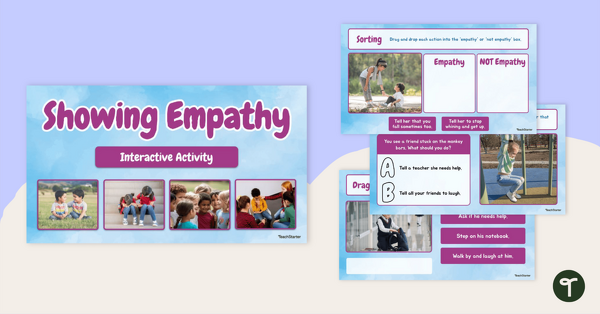
Showing Empathy Interactive Activity
Encourage your students to identify acts of empathy and determine the right thing to do in a given situation with an interactive activity designed for year 1 and 2 students.
- Plus Plan
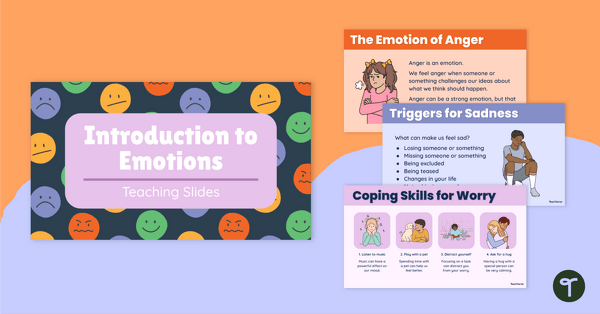
Introduction to Emotions Teaching Slides
Teach your students to understand and manage their emotions with this comprehensive teaching presentation for your social-emotional learning lessons.
- Plus Plan
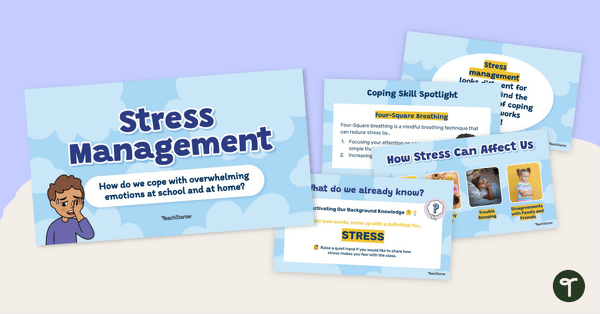
Stress Management Techniques for Kids Teaching Slides
An editable PowerPoint presentation to use when teaching your students about stress management.
- Plus Plan
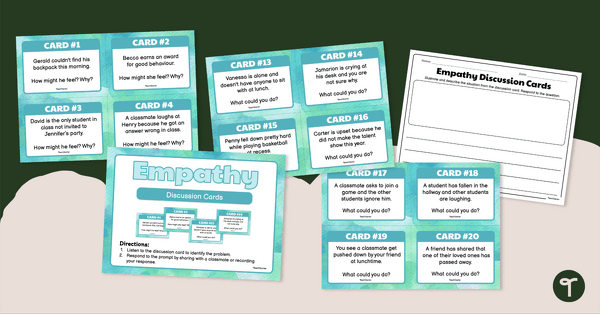
Empathy Discussion Cards
Promote kindness and understanding in your classroom! Download our set of empathy discussion cards to engage your students in meaningful conversations.
- Plus Plan
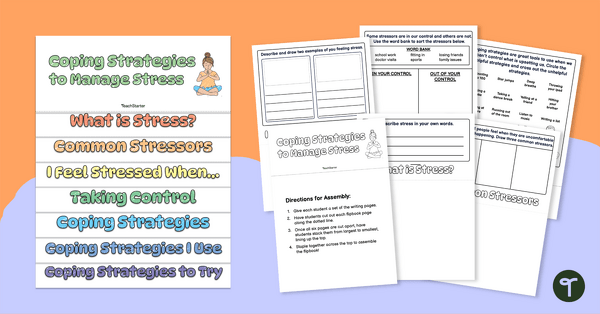
Coping Strategies to Manage Stress Flipbook
Get crafty with your students creating this colourful flip book containing their own preferences of strategies for managing stress.
- Plus Plan
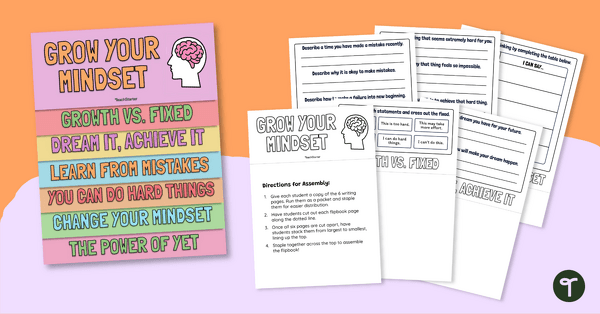
Growth Mindset Flipbook
Explore the topic of growing your mindset with your students using this engaging flipbook template.
- Plus Plan
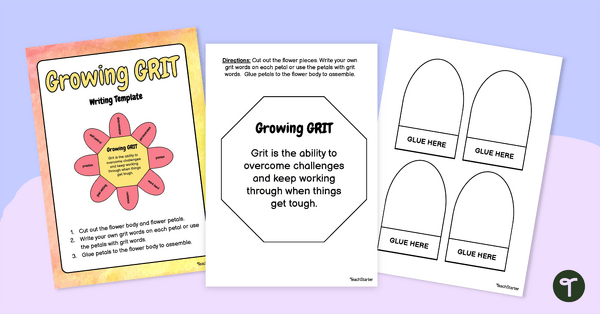
Growing GRIT Writing Template
Encourage students to think about what grit is as well as words that describe grit with this craft template.
- Plus Plan
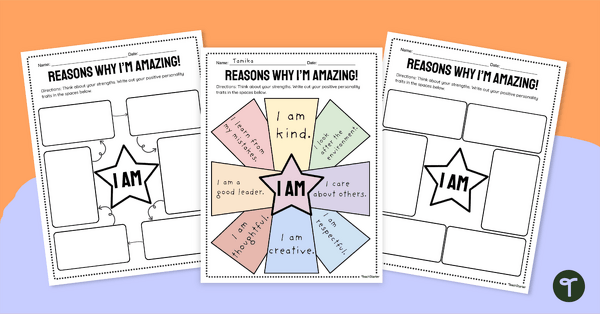
'Why I'm AMAZING' Self-Esteem Templates
Boost students' self-esteem with these Reasons Why I'm AMAZING templates.
- Social Emotional Learning Templates
- Social Emotional Learning Worksheets
- Social Emotional Learning Posters
- Social Emotional Learning Games
- Social Emotional Learning Labels, Signs & Decorations
- Social Emotional Learning Teaching Presentations
- Social Emotional Learning for Preschool/Kindergarten
- Social Emotional Learning for Foundation Year
- Social Emotional Learning for Year 1
- Social Emotional Learning for Year 2
- Social Emotional Learning for Year 3
- Social Emotional Learning for Year 4
- Social Emotional Learning for Year 5
- Social Emotional Learning for Year 6
- Social Emotional Learning for Year 7